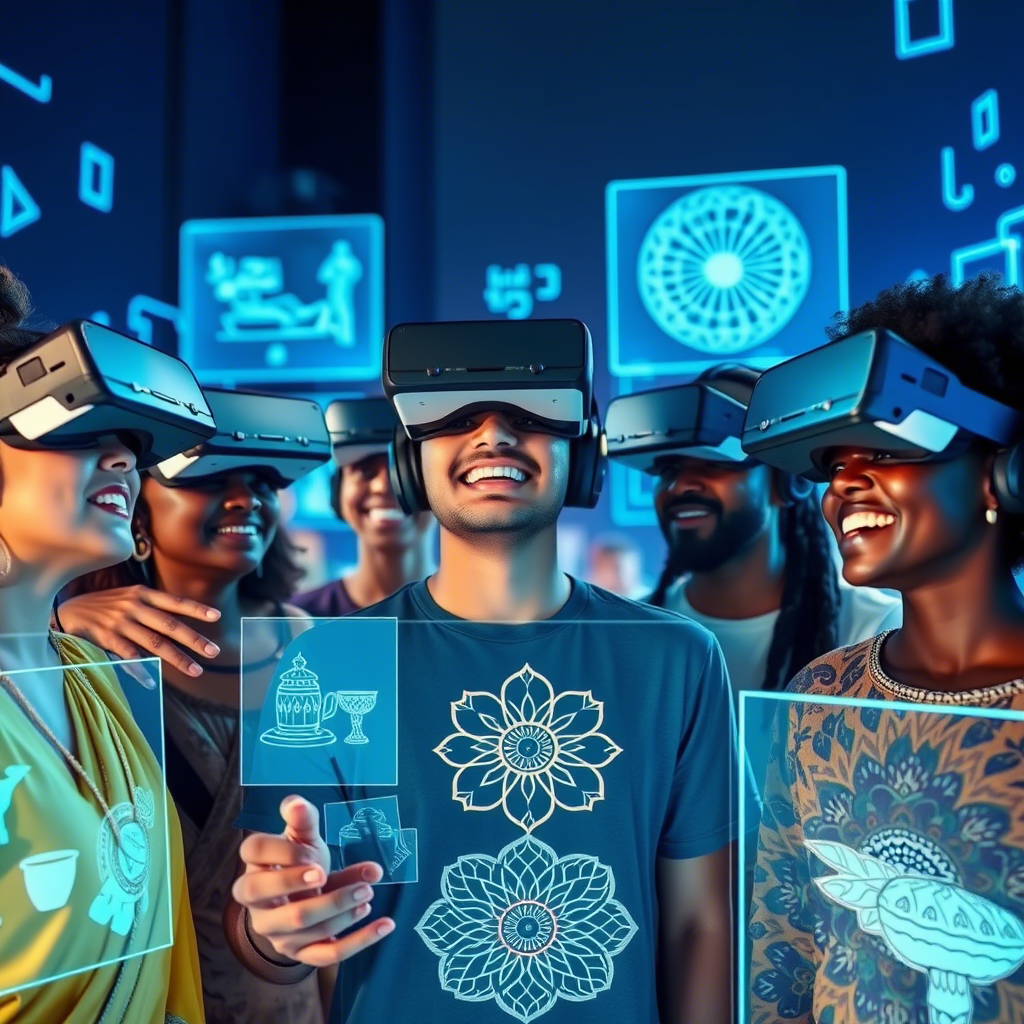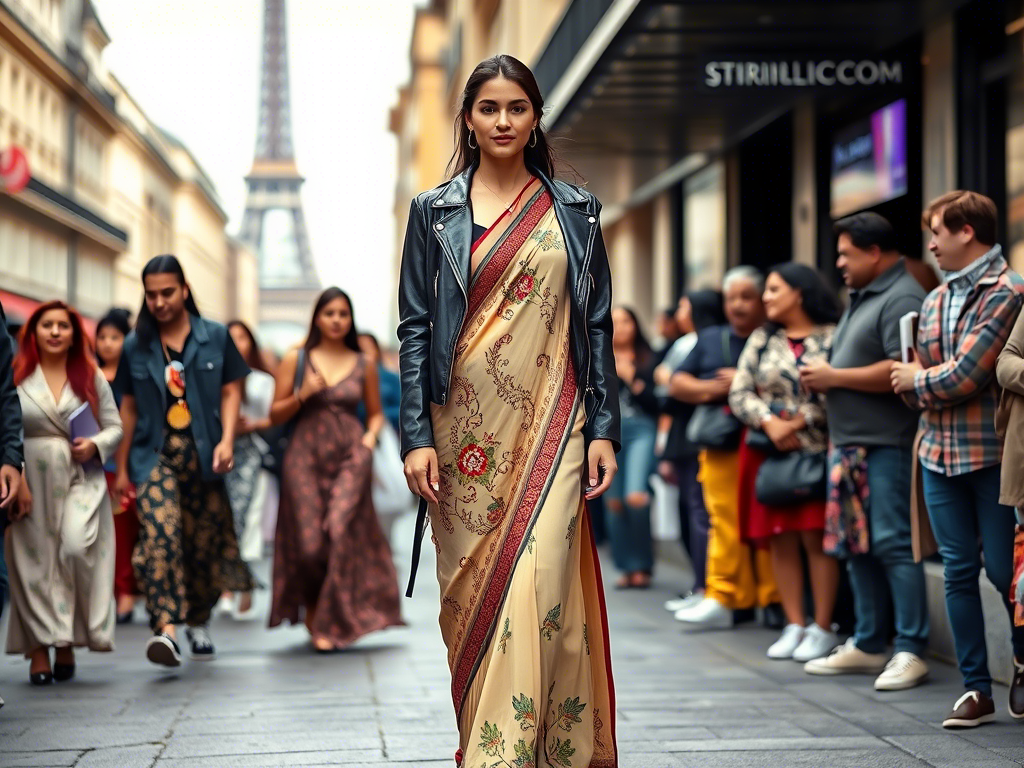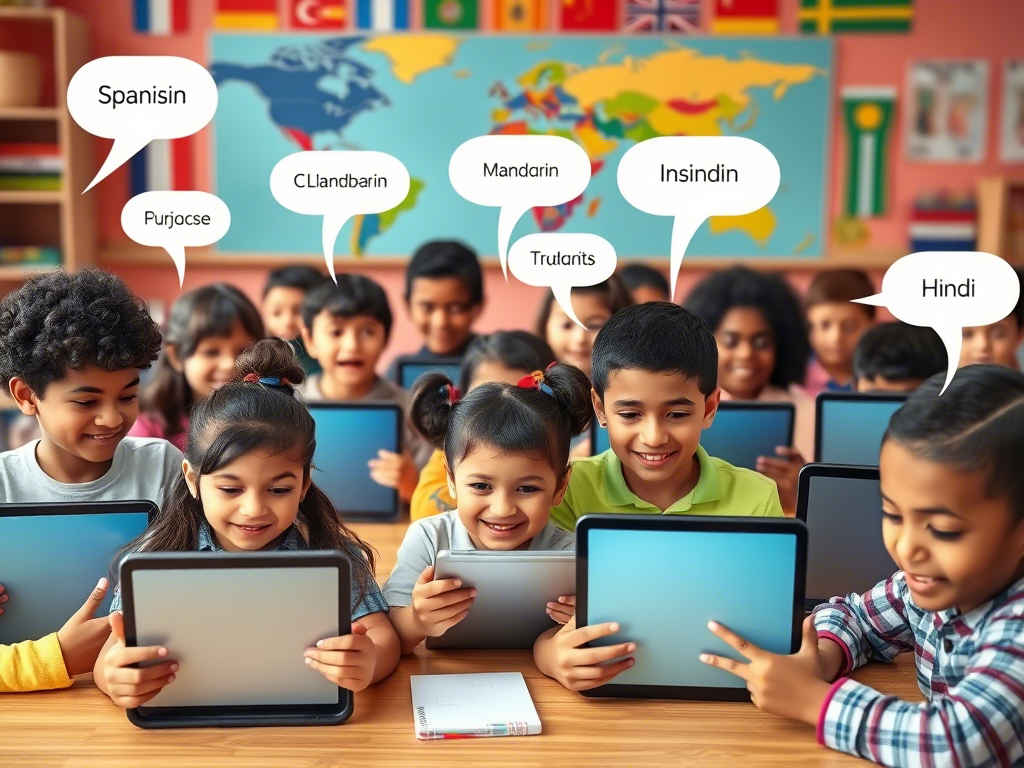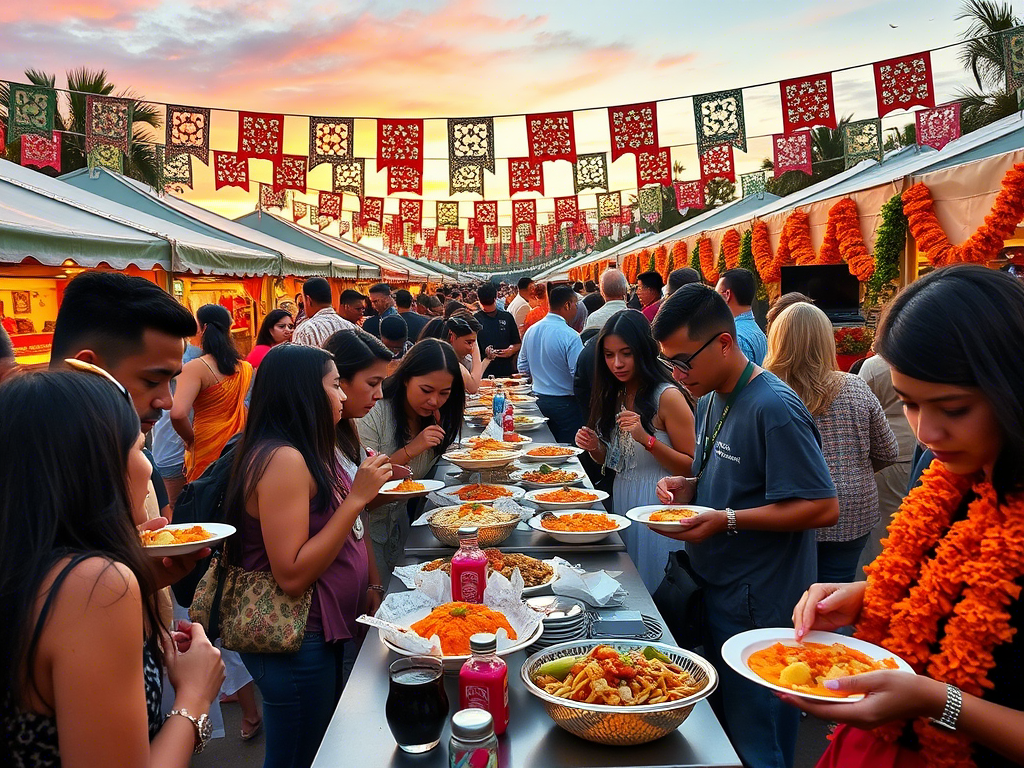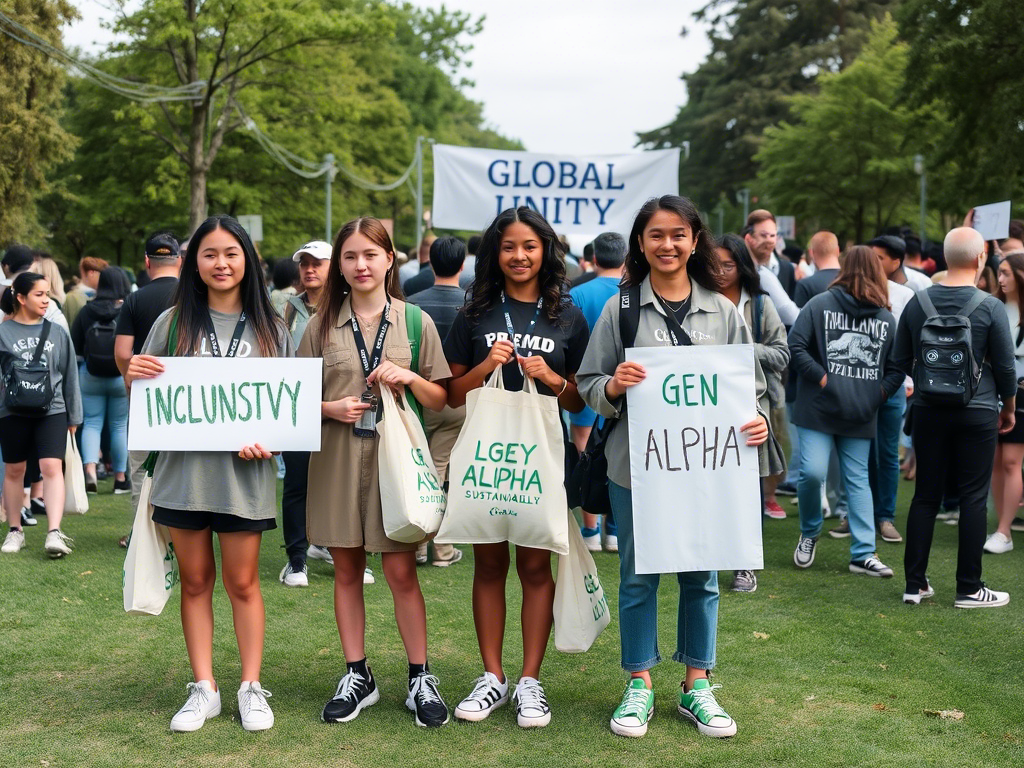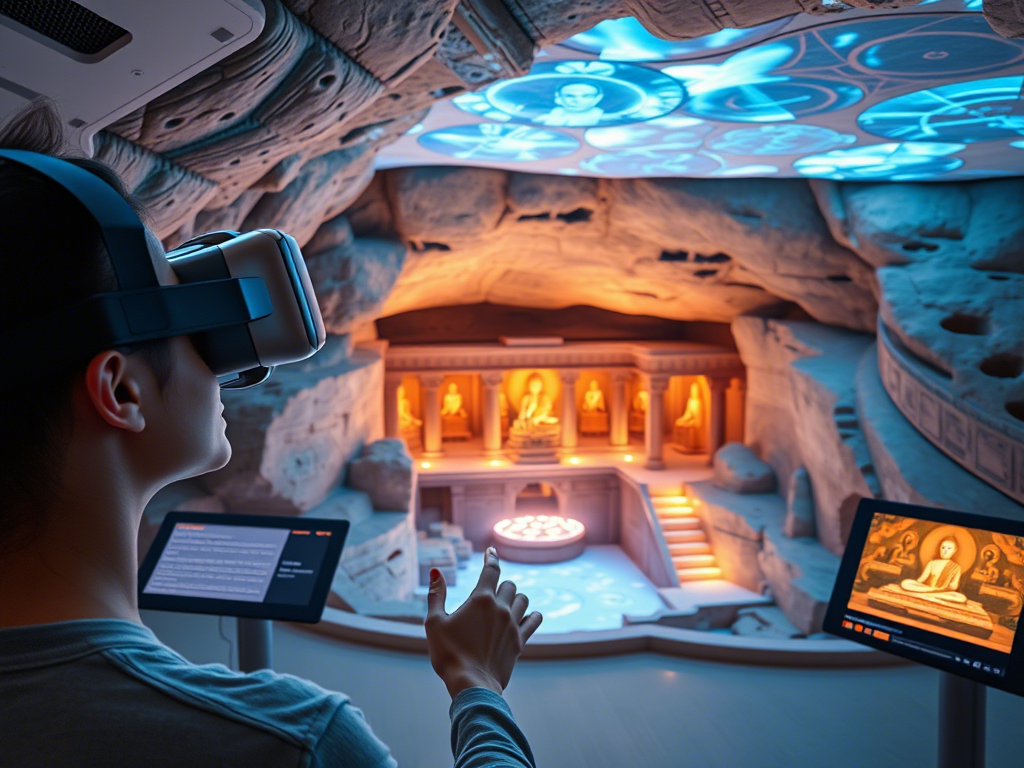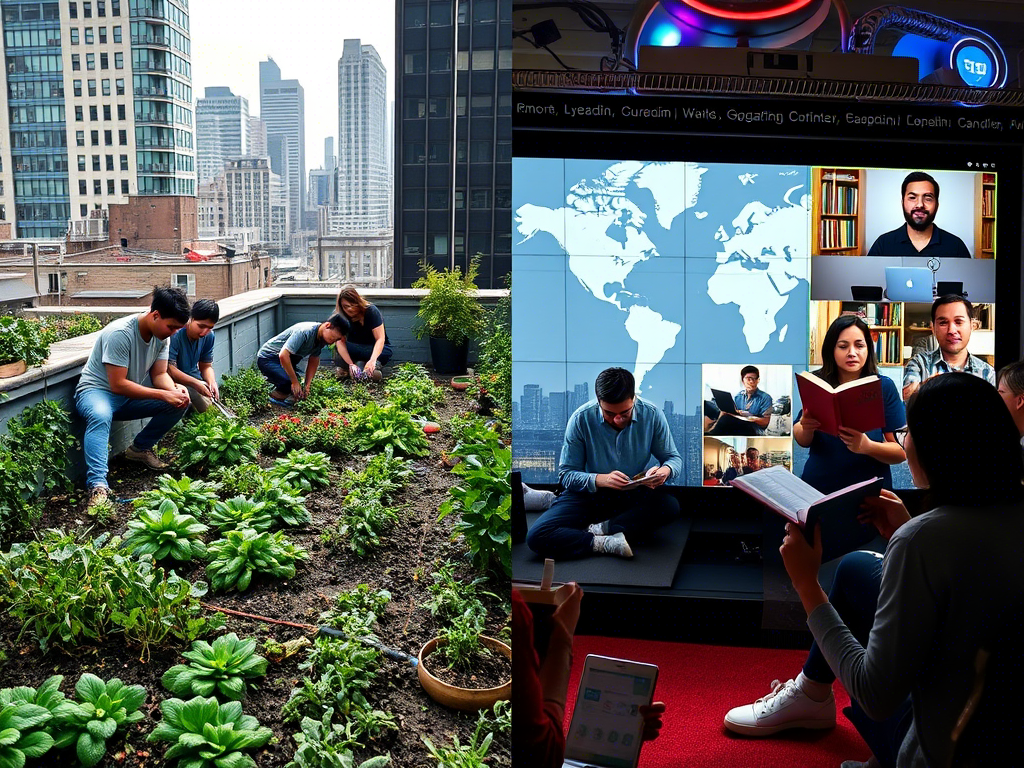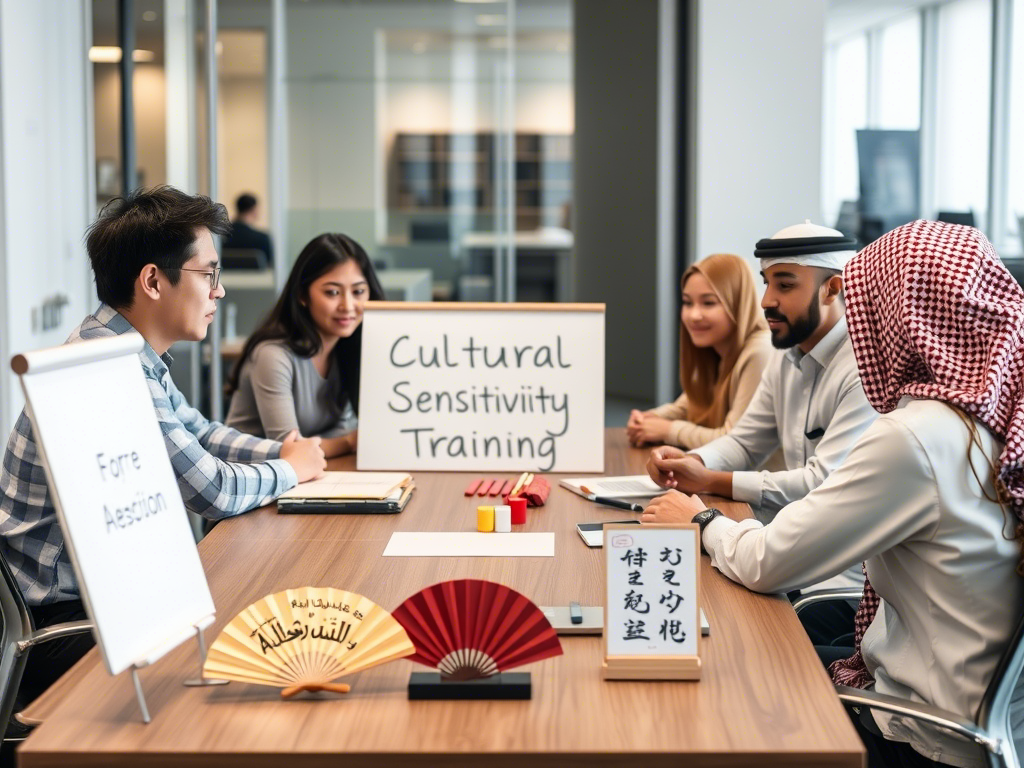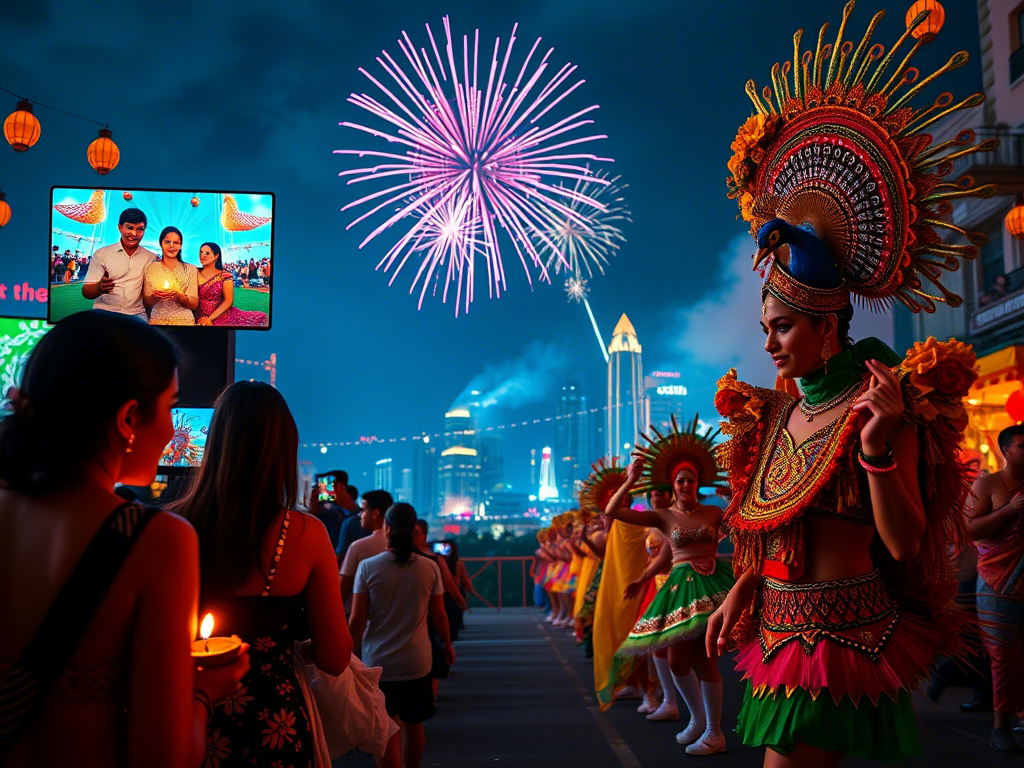What is the Future of Global Culture? Trends to Watch in 2025
As we step into 2025, the world is more interconnected than ever before. Global culture—the shared values, traditions, and practices that shape how we live, communicate, and interact—is evolving at an unprecedented pace. From the rise of technology to shifting societal values, several trends are shaping the future of global culture. In this article, we'll explore these trends in detail, focusing on what they mean for you, how they might impact your daily life, and practical insights based on real-world observations. Whether you're a student, a professional, a traveler, or simply someone curious about the world, these trends will help you navigate the cultural shifts of 2025.
1. The Rise of Digital Cultural Exchange
What’s Happening?
The digital world has become the primary platform for cultural exchange in 2025. Social media platforms like X, Instagram, and TikTok, along with virtual reality (VR) spaces, are breaking down geographical barriers. People from different corners of the world are sharing their traditions, languages, and lifestyles in real-time. For example, a teenager in Mumbai can learn about Japanese tea ceremonies through a VR experience, while a family in New York can participate in a virtual Diwali celebration hosted by someone in Delhi.
Why It Matters to You
This trend means you have access to a wealth of cultural experiences without leaving your home. Whether you're a foodie, a language enthusiast, or a history buff, you can immerse yourself in global cultures with just a few clicks. For instance, I recently joined a virtual Korean cooking class on X Spaces, where a chef from Seoul taught us how to make kimchi. It was an eye-opening experience—I not only learned a new recipe but also discovered the cultural significance of fermentation in Korean cuisine.
Practical Tips
- Join Online Communities: Look for groups on X or other platforms that focus on cultures you're interested in. For example, search for hashtags like #JapaneseCulture or #AfricanTraditions to find live events or discussions.
- Use VR Tools: Platforms like Meta Horizon Worlds or VRChat offer cultural events in virtual spaces. Attend a virtual festival or museum tour to experience global traditions firsthand.
- Share Your Culture: If you're proud of your heritage, host your own virtual event. I shared a recipe for my family's traditional Indian mango lassi on Instagram, and it sparked conversations with people from Brazil and Canada who tried making it themselves.
2. The Blending of Traditional and Modern Fashion
What’s Happening?
In 2025, fashion is becoming a powerful medium for cultural fusion. Designers are blending traditional elements with modern styles, creating unique pieces that reflect global influences. For example, you might see a saree-inspired gown at a Paris fashion show or a kimono-style jacket paired with jeans in New York. Sustainable fashion is also on the rise, with brands using traditional weaving techniques from countries like India and Peru to create eco-friendly clothing.
Why It Matters to You
This trend allows you to express your cultural identity while staying on-trend. It also makes fashion more inclusive—whether you prefer a minimalist look or a vibrant traditional outfit, there's something for everyone. Last month, I attended a wedding where the bride wore a lehenga with a modern twist: the traditional embroidery was paired with a sleek, Western-style blouse. It was a beautiful mix of cultures that resonated with guests from diverse backgrounds.
Practical Tips
- Experiment with Fusion Styles: Try pairing a traditional piece with a modern one. For example, wear a kurta with jeans or accessorize a Western dress with a Maasai-inspired beaded necklace.
- Support Sustainable Brands: Look for brands that collaborate with artisans from different cultures. I recently bought a scarf from a brand that works with Peruvian weavers—it’s not only beautiful but also supports traditional craftsmanship.
- Attend Cultural Fashion Events: Many cities host fashion shows that highlight global styles. If you're in a metropolitan area, check local event listings for exhibitions or pop-up markets.
3. The Global Rise of Multilingualism
What’s Happening?
In 2025, knowing multiple languages is becoming a global norm. With AI-powered language apps and real-time translation tools, learning a new language is easier than ever. Schools and workplaces are also emphasizing bilingual education. For example, companies in the U.S. are encouraging employees to learn Spanish or Mandarin to better connect with international clients, while in India, regional languages like Tamil and Bengali are being taught alongside English and Hindi.
Why It Matters to You
Being multilingual opens doors to new opportunities, whether you're traveling, working, or building relationships. It also helps you understand different cultures more deeply. I started learning French last year using an AI app, and during a recent trip to Montreal, I was able to order food and ask for directions in French. The locals appreciated my effort, and it made my travel experience much more meaningful.
Practical Tips
- Use Language Apps: Apps like Duolingo or Babbel offer bite-sized lessons that fit into your daily routine. Set a goal to practice for 10 minutes a day.
- Engage with Native Speakers: Join language exchange groups on platforms like Tandem or HelloTalk. I connected with a French speaker who helped me with pronunciation, and in return, I taught her some Hindi phrases.
- Incorporate Language into Your Routine: Watch movies, listen to music, or read books in the language you're learning. I found that watching French movies with subtitles helped me pick up common phrases faster.
4. Food as a Cultural Connector
What’s Happening?
Food continues to be a universal language in 2025, with global cuisines becoming more accessible. Restaurants and home cooks are experimenting with fusion dishes, like sushi tacos or masala pasta, that blend flavors from different cultures. Food festivals are also on the rise, offering a taste of the world in one place. Additionally, technology is playing a role—AI-powered recipe apps can now suggest dishes based on your cultural preferences and dietary needs.
Why It Matters to You
This trend means you can explore global cultures through your taste buds, whether you're dining out or cooking at home. It also fosters a sense of community—sharing a meal is a great way to connect with others. I recently attended a food festival in my city where I tried Ethiopian injera with spicy lentils. The stall owner explained the cultural significance of eating with your hands, which made the experience even more enriching.
Practical Tips
- Visit Food Festivals: Look for local food festivals or markets that feature international cuisines. These events often include cooking demos and cultural performances.
- Try Fusion Recipes: Experiment with recipes that combine flavors from different cultures. I made a masala pasta at home by adding Indian spices like cumin and turmeric to a classic Italian dish—it was a hit with my family!
- Use AI Recipe Tools: Apps like Yummly or Tasty can suggest recipes based on your preferences. Search for dishes from cultures you're curious about, and give them a try.
5. The Influence of Gen Z and Gen Alpha on Cultural Values
What’s Happening?
Gen Z (born 1997–2012) and Gen Alpha (born 2013–2025) are driving cultural shifts in 2025. These generations prioritize inclusivity, sustainability, and authenticity. They’re using platforms like X to advocate for social justice, climate action, and mental health awareness. For example, Gen Z-led movements have popularized gender-neutral fashion and beauty standards, while Gen Alpha is growing up with a strong awareness of environmental issues, influencing family decisions like reducing plastic use.
Why It Matters to You
This trend affects how you interact with the world, from the products you buy to the values you embrace. It also creates a more inclusive society where diverse identities are celebrated. I’ve noticed this shift in my own family—my younger cousin, who’s part of Gen Alpha, convinced us to switch to reusable bags and straws after learning about plastic pollution in school. It’s a small change, but it’s made us more conscious of our environmental impact.
Practical Tips
- Support Inclusive Brands: Choose brands that align with values like inclusivity and sustainability. For example, I started buying from a clothing brand that offers gender-neutral options and uses eco-friendly materials.
- Engage with Younger Generations: If you have Gen Z or Gen Alpha family members, listen to their perspectives. They often have fresh ideas about how to make the world a better place.
- Advocate for Change: Use platforms like X to share your thoughts on issues that matter to you. I joined a conversation about mental health awareness and connected with people from around the world who shared similar experiences.
6. The Role of Technology in Preserving Cultural Heritage
What’s Happening?
In 2025, technology is being used to preserve and share cultural heritage. Museums and cultural organizations are creating digital archives, 3D models, and VR experiences to make history accessible to everyone. For example, you can now take a virtual tour of the Pyramids of Giza or explore ancient Indian temples through a 3D app. AI is also being used to translate and digitize ancient texts, making them available to a global audience.
Why It Matters to You
This trend allows you to explore cultural heritage in ways that were previously impossible. It also ensures that traditions and histories are preserved for future generations. Last year, I used a VR app to "visit" the Ajanta Caves in India. The experience was so immersive that I felt like I was walking through the ancient Buddhist site, even though I was sitting in my living room.
Practical Tips
- Explore Digital Museums: Visit websites like Google Arts & Culture or the British Museum’s online collection to explore artifacts and exhibitions from around the world.
- Use VR Apps: Download apps like VR Museum or Art Plunge to experience cultural sites in 3D. These apps are often free or low-cost.
- Contribute to Preservation: If you have knowledge about your own culture, consider contributing to digital archives. I shared some family stories with a local cultural project, and they were added to an online database for others to learn from.
7. The Shift Toward Hyper-Local and Hyper-Global Communities
What’s Happening?
In 2025, people are forming communities that are both hyper-local and hyper-global. Hyper-local communities focus on neighborhood-level connections, like urban gardening groups or local art collectives. At the same time, hyper-global communities bring together people with shared interests from around the world, such as global book clubs or virtual fitness challenges. Technology enables these dual connections, allowing you to engage with both your immediate surroundings and the global stage.
Why It Matters to You
This trend gives you the best of both worlds: a sense of belonging in your local community and the opportunity to connect with like-minded people globally. I joined a hyper-local gardening group in my neighborhood, where we share tips on growing vegetables in small spaces. At the same time, I’m part of a global book club on X, where I discuss novels with readers from Japan, Brazil, and Germany.
Practical Tips
- Get Involved Locally: Look for community events or groups in your area. Websites like Meetup or local government pages often list activities like farmers’ markets or art workshops.
- Join Global Groups: Use platforms like X or Discord to find global communities that match your interests. Search for groups related to your hobbies, such as #GlobalBookClub or #VirtualYoga.
- Balance Both Worlds: Dedicate time to both local and global activities. For example, I spend Saturday mornings at my gardening group and Sunday evenings discussing books with my online club.
8. The Evolution of Entertainment and Media
What’s Happening?
Entertainment in 2025 is becoming more interactive and culturally diverse. Streaming platforms like Netflix and Disney+ are producing shows and movies that reflect global stories, such as Korean dramas, Indian historical epics, and African coming-of-age films. Interactive media, like choose-your-own-adventure games and VR concerts, is also gaining popularity. For example, you can now attend a virtual concert by a K-pop band or play a game where you decide the storyline.
Why It Matters to You
This trend means you have access to a wider range of entertainment that reflects diverse cultures. It also makes media more engaging, as you can actively participate in the experience. I recently watched a Nigerian movie on Netflix that explored family dynamics in Lagos—it gave me a new perspective on African culture. I also attended a VR concert by a band I love, which felt like being at a live show without leaving my house.
Practical Tips
- Explore Global Content: Browse streaming platforms for movies and shows from different countries. Look for categories like "International Films" or "Global Series."
- Try Interactive Media: Experiment with interactive games or VR experiences. Platforms like Steam or Oculus offer a variety of options, from adventure games to virtual concerts.
- Share Recommendations: If you find a great show or game, recommend it to friends or on platforms like X. I shared my thoughts on the Nigerian movie I watched, and it sparked a great discussion with my followers.
9. The Growing Importance of Cultural Sensitivity
What’s Happening?
As the world becomes more interconnected, cultural sensitivity is more important than ever in 2025. People are becoming more aware of the need to respect and understand different cultures, especially in workplaces, schools, and online spaces. For example, companies are offering cultural sensitivity training to employees, while social media platforms are cracking down on content that promotes stereotypes or discrimination.
Why It Matters to You
Being culturally sensitive helps you build better relationships and avoid misunderstandings, whether you're traveling, working, or interacting online. I once made the mistake of assuming a colleague from Japan would prefer a handshake, but I later learned that a slight bow is more appropriate in her culture. Taking the time to understand these nuances has made my interactions more respectful and meaningful.
Practical Tips
- Educate Yourself: Read about the cultures you interact with, especially if you’re traveling or working with people from different backgrounds. Websites like Culture Crossing or BBC Travel offer great resources.
- Ask Questions: If you’re unsure about a cultural practice, ask respectfully. Most people appreciate genuine curiosity. I asked my Japanese colleague about greeting customs, and she was happy to explain.
- Be Mindful Online: When posting on platforms like X, avoid generalizations or stereotypes. Focus on celebrating diversity rather than perpetuating biases.
10. The Future of Global Festivals and Celebrations
What’s Happening?
In 2025, global festivals are becoming more inclusive and accessible. Hybrid events—combining in-person and virtual elements—are making it possible for people worldwide to participate in celebrations like Diwali, Carnival, or Oktoberfest. Communities are also creating new festivals that blend traditions, such as "Global Unity Day," where people from different cultures share music, dance, and food in a single event.
Why It Matters to You
This trend means you can experience global celebrations no matter where you are. It also fosters a sense of unity and shared humanity. Last year, I joined a virtual Diwali celebration hosted by a community in London. Even though I was thousands of miles away, I felt connected as we lit virtual lamps and shared stories about the festival.
Practical Tips
- Participate in Hybrid Events: Look for festivals that offer virtual access. Many events now stream live on platforms like YouTube or X.
- Host Your Own Celebration: Organize a small event that blends your cultural traditions with others. I hosted a fusion celebration for Holi and Easter, where we played with colors and had an egg hunt—it was a fun way to bring people together.
- Learn About New Festivals: Use 2025 as an opportunity to explore festivals you’re unfamiliar with. For example, I plan to join a virtual Carnival celebration this year to learn more about Brazilian culture.
Conclusion: Navigating the Future of Global Culture
The future of global culture in 2025 is vibrant, diverse, and interconnected. From digital exchanges to fusion fashion, multilingualism to food, technology to festivals, these trends are reshaping how we experience and share culture. As someone living in this dynamic world, you have the opportunity to engage with these changes in meaningful ways. Whether you’re learning a new language, trying a fusion recipe, or joining a virtual festival, each step you take helps you connect with the global community.
The key is to approach these trends with curiosity, respect, and a willingness to learn. By doing so, you’ll not only enrich your own life but also contribute to a more inclusive and understanding world. So, as we move through 2025, take a moment to explore a new culture, share your own traditions, and celebrate the beauty of our shared humanity.

